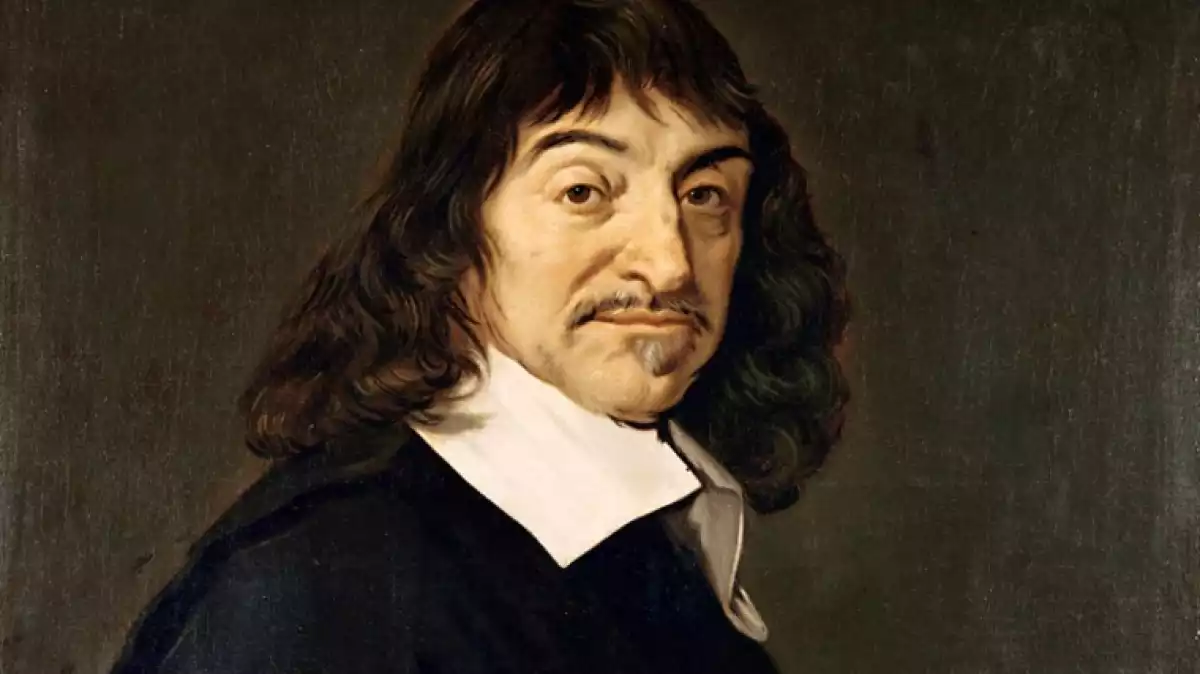
Although the development of human societies is due more to the joint and cumulative action of many people over time than to the efforts of a few famous figures, it is undeniable that some women and men have changed the world. These personalities have become historical figures worthy of being remembered for decades, centuries or even millennia after their death.
Below, we have compiled a list of 40 historical figures of all times who have excelled in very different areas - from rulers and conquerors to scientists, artists, philosophers, and explorers, or ordinary people who have been as influential as the most important historical figures of the history.
40 historical figures that have changed the world
In this list, we will briefly talk about 40 of the most influential historical figures in the world throughout history. We have included both men and women, and we have tried to select great personalities from around the planet, although it is somewhat difficult to avoid a Eurocentric approach when investigating human history.
1. Hammurabi (1810-1750 BC)
Hammurabi (Ammurapi) was king of Babylon in the eighteenth century BC, and during this period he extended the rule of his kingdom by conquering different territories of the Mesopotamian region.
This Babylonian emperor is known above all for the "Code of Hammurabi", a set of 282 laws that dictated specific physical punishments based on the crime and the characteristics of the person who committed it, including biological sex or social status - for example, the law of Hammurabi was not the same for a slave as for a free person.
2. Hatshepsut (1507-1458 BC)
Maatkara Hatshepsut was the second woman who played the role of the pharaoh in Ancient Egypt, the first being Sobekneferu (at least according to the available historical records).
Hatshepsut is considered "the first great woman in history" of which there is evidence by some historians. She was one of the most celebrated rulers of Ancient Egypt, as well as one of those who ruled for a longer period.
3. Sappho (650/610-580 BC)
Sappho (Psapphô) was a poet born in Mytilene, on the Greek island of Lesbos, who wrote poems intended to be recited with the accompaniment of a lyre ("lyric poems").
Her influences are not limited to poetry and Sappho of Lesbos is considered a symbol of lesbianism today; however, in ancient Greece, jokes about Sappho were common as a promiscuous heterosexual woman. The philosopher Plato, the next historical figure included in our list, spoke of Sappho as "the tenth Muse" and as one of the most important Greek poetesses.
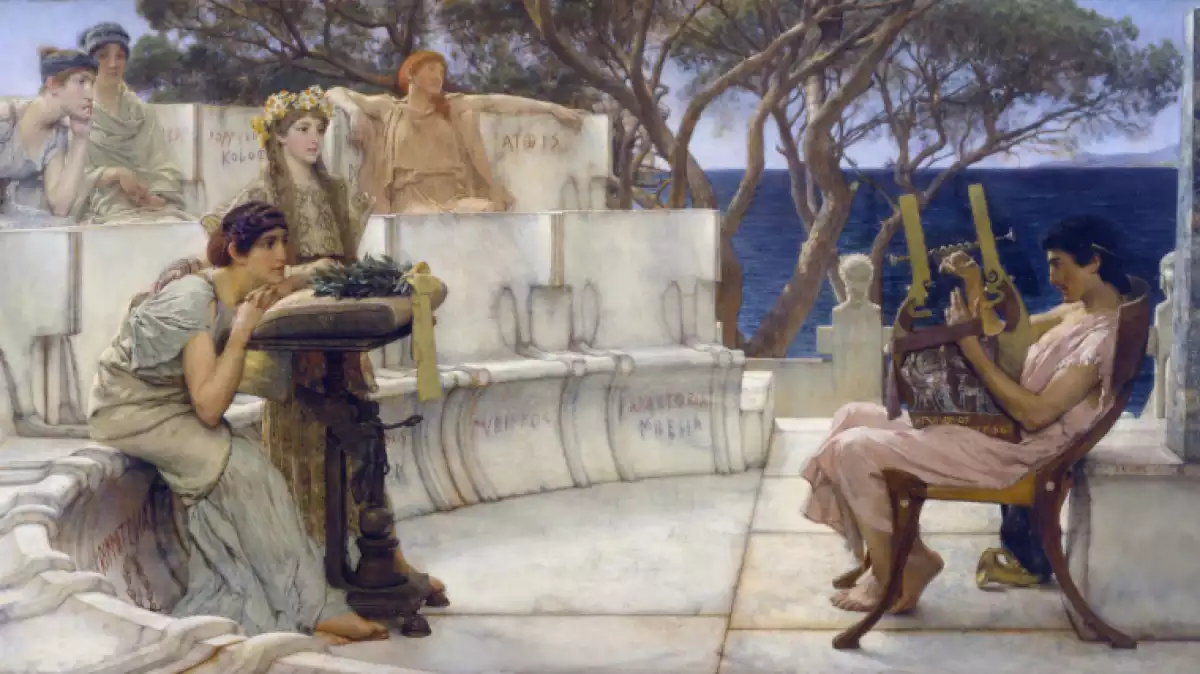
4. Gautama Buddha (563/480-483/400 BC)
Siddharta Gautama, who is usually referred to as "Buddha," was the philosophical monk who founded the Buddhist religion from meditation, which led him to "enlightenment" and knowledge about how to help living beings and reduce suffering.
Although many believers deny that it can be considered as such, Buddhism is one of the most important religions in the world, with more than 500 million followers worldwide (approximately 8% of the world population).
5. Confucius (551-479 BC)
Kong Fuzi ("Master Kong") was a philosopher, educator, and politician who lived in Ancient China and who had a major influence on the development of the society of this region during the subsequent millennia.
The philosophy promoted by Confucius is called Confucianism. This defends the importance of favoring the maintenance of the current social structure through personal conduct that is educated, honest and inoffensive to the power.
6. Plato (428/427-348/347 BC)
Plato is one of the most influential philosophers in the history of mankind, in particular, the Western school of thought, which would end up being dominant throughout the world, was determined to a large extent by Platonic concepts such as the soul, as well as by its perspectives on reason, ethics or political organization.
7. Aristotle (384-322 BC)
Along with Plato, Aristotle is considered the father of Western philosophy. His work has had a major influence throughout history in science, logic, philosophy or mathematics in Europe and, consequently, the rest of the world.
Likewise, Aristotle was the personal tutor of the next historical figure on our list, Alexander the Great, until the latter turned 16.
8. Alexander the Great (356-323 BC)
Alexander III of Macedonia is one of the great conquerors in the history of humankind. His army first subdued the region of Greece and later Persia, multiple islands and parts of Asia Minor to India, and was never defeated in battle - although it was worn out over the years.
Although Alexander the Great died at the age of 32 and his reign was very brief, he brought significant advancements to the political situation of the affected regions in a critical way, as well as favoring cultural and economic exchange.
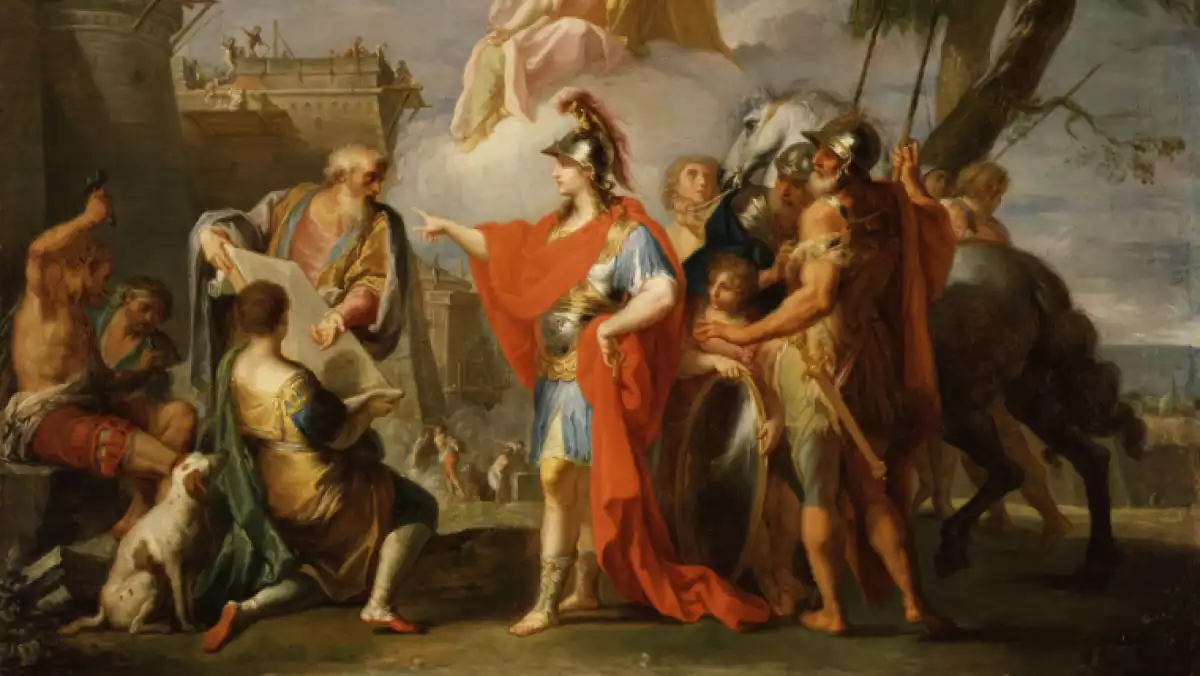
9. Qin Shi Huang (259-210 BC)
King Zheng was known as the "First Emperor" of China - or Qin Shi Huang. The founder of the Qin dynasty unified the region of China on a political, economic and military level, putting an end to the so-called period of the "fighting kingdoms."
As a historical figure, Emperor Qin Shi Huang is associated with the unification of China, which would continue with a very similar configuration until today.
10. Julius Caesar (100-44 BC)
The Roman politician and general Gaius Iulius Caesar is one of Europe's key historical figures: Julius Caesar is the most important figure in the transformation of the Republic of Rome into the Roman Empire, whose influence largely explains the culture, languages, the religion, politics or philosophy of Europe.
11. Cleopatra (69-30 BC)
Cleopatra is remembered for being the last Empress of Ptolemaic Egypt-that is the period that followed the conquest of Alexander the Great and preceded that of Rome.
The alliance of Queen Cleopatra with Julius Caesar and later with Mark Antony (another relevant Roman general) concluded with the conquest of Egypt by Octavian and his subsequent incorporation into the nascent Roman Empire.
12. Hypatia (350-415 AD)
Hypatia of Alexandria is one of the most remembered female historical figures today. She is the first mathematical woman with reliable records, and she also made relevant contributions in the fields of astronomy and philosophy; in this sense, Hypatia was the leader of the Neoplatonic School of Alexandria.
Considered a pagan by rejecting the existence of a single god, Hypatia was skinned by Christians in a period of religious conflict in the Roman Empire.
13. Avicenna (980-1037 AD)
The original abbreviated name of Avicenna is "Ibn Sina." This historical figure is a key figure in the history of medicine since he wrote the medical encyclopedia called "Canon of Medicine," whose influence would be fundamental in the universities of Europe during the Middle Ages. Ibn Sina also made relevant contributions to astronomy, logic, mathematics, theology, poetry and even alchemy.
14. Genghis Khan (1162-1227)
Genghis Khan's birth name was Temujin, and he was the warrior who founded the first Mongol Empire after uniting the nomadic tribes of Northeast Asia, coming to dominate areas as far as Siberia, Eastern Europe or India.
Genghis Khan is remembered for the vast amount of territory he conquered and for the violent methods by which he achieved it. He is also relevant for his enormous number of descendants: in fact, it is said that 8% of the current population of the region who ruled Genghis Khan are descendants of the Mongol emperor (the ruler had over 500 secondary wives and concubines).
15. Joan of Arc (1412-1431)
Joan of Arc, "the Maid of Orleans," is a French historical figure who has had a significant influence around the world. Joan of Arc was a peasant who led the French army during the Hundred Years' War when she was only 17 years old and played a vital role in the expulsion of the English and the coronation of Charles VII of Valois.
However, she was captured, given to her enemies and burned alive under the accusation of heresy. At the time of her death, Joan was 19 years old.
16. Christopher Columbus (1451-1506)
The Genoese Cristoforo Colombo is considered by many Westerners to be responsible for the so-called "discovery of America" -that is, tracing and sharing the route between Europe and the "New World", favoring not only commercial exchange but, in a decisive way, the conquest of the continent by European civilizations, and therefore the fall of the Aztec and Inca empires.
17. Leonardo da Vinci (1452-1519)
Leonardo di Piero da Vinci is the quintessential historical figure of the Italian Renaissance as he was a master of multiple areas of knowledge and creativity - painting, sculpture, engineering, mathematics, writing, history or anatomy, among others.
This "man of the Renaissance" was the precursor of important inventions such as the hydraulic pump, the parachute, the aerial screw (the helicopter's predecessor), automobiles or tanks. Leonardo's designs contain serious errors that would have made his operation unviable, but it is possible that he included them voluntarily to prevent plagiarism.
18. Miguel de Cervantes (1547-1616)
The only Spaniard in this list of historical figures is Miguel de Cervantes Saavedra, author of the novel El Quijote ("The Ingenious Hidalgo Don Quixote de La Mancha"). Cervantes is not only considered the greatest of all writers in the history of Spain and Castilian, but the fact that Don Quixote is the second most translated book in the world (after the Bible) gives him a position of honor in the history of universal literature and art.
19. Galileo Galilei (1564-1642)
Galileo Galilei was a scientist and artist born in Pisa (Italy) in the sixteenth century. His contributions to mathematics and astronomy make many people consider him the father of modern science or, more specifically, the scientific method against the principles based on the philosophy of Aristotle, dominant in the Middle Ages.
Galileo's contributions include the creation of the telescope and other applications of science, the study of gravity or velocity, or the formulation of the principle of inertia, that of relativity and the first law of motion.
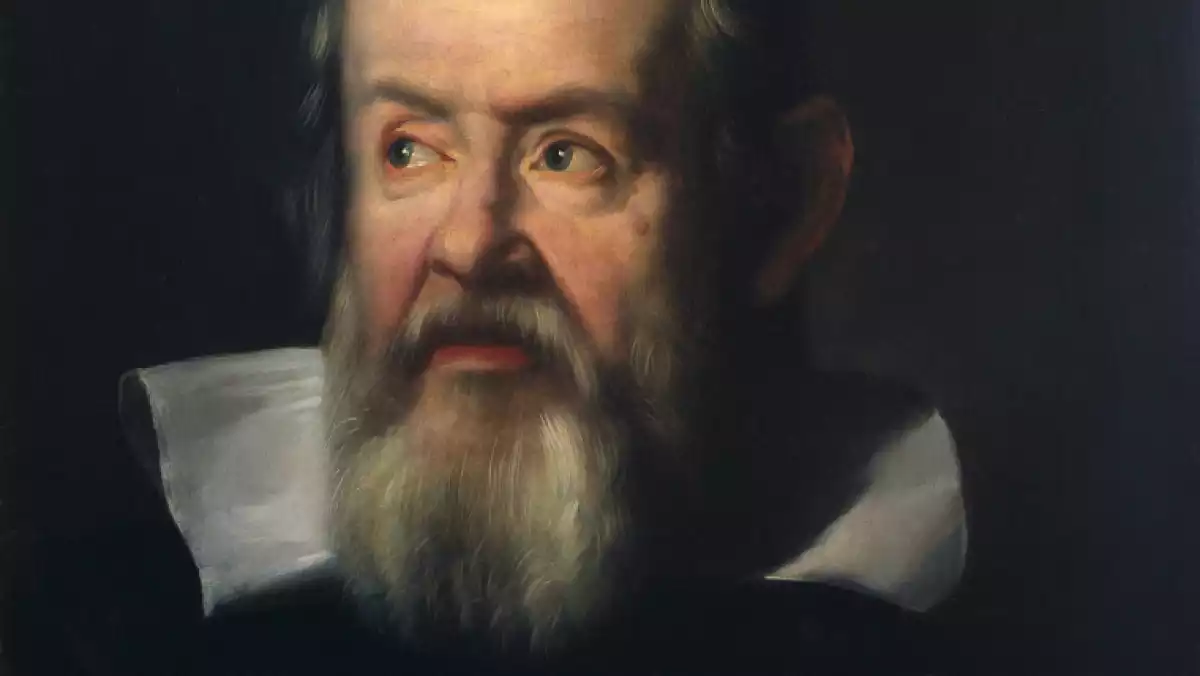
20. René Descartes (1596-1650)
René Descartes is probably the most influential philosopher of the last 500 years. His ideas were fundamental in the consolidation of rationalism, which would become the hegemonic philosophy worldwide until today.
For example, the division between body and soul/mind ("dualism") is inseparable from how sciences such as medicine and psychology have developed over the past centuries.
21. Johann Sebastian Bach (1685-1750)
The German composer and multi-instrumentalist Johann Sebastian Bach is one of the key historical figures in the musical field: he not only composed a huge number of masterpieces (including the Brandenburg Concerts or the Goldberg Variations), but his musical contributions influenced Beethoven, Mozart, Brahms, and many other great musicians.
22. Adam Smith (1723-1790)
The Scottish economist and philosopher Adam Smith is probably the most influential figure in the capitalist economy of recent centuries. His work "The Wealth of Nations" (1776), laid the foundations of the so-called "free market," in addition to conceptualizing the division of labor and disclosing the supposed benefits of competition and personal selfishness for the economy.
Although Smith is currently remembered for the idea of an "invisible hand" that would balance the market without the state´s intervention, the truth is that this concept is an a posteriori perversion of a passage that does not describe anything similar. That passage has been used more or less consciously to provide an apparent theoretical basis for the lack of regulation of the economy, and that has no empirical support either.
23. Simón Bolívar (1783-1830)
Simon José Antonio de la Santísima Trinidad Bolívar Palacios Ponte y Blanco is a historical figure remembered as a symbol of the independence of Latin America concerning Spain.
This politician and military figure had an essential role in the emancipation of Venezuela (his native country), Peru, Colombia, Ecuador, and Panama. For this reason, he was awarded the honorary title of "Liberator."
24. Charles Darwin (1809-1882)
Charles Robert Darwin was the English scientist who, through the publication of the book "The Origin of Species" (1859), managed to build an elaborate and hugely influential theory of evolution around the world after that.
According to Darwin's premise, all living beings start from a common ancestor, and the variations in the species are due to the natural selection of individual characteristics that would have increased the probability of surviving in specific contexts. Current science departs in no small extent from Darwin's evolutionary theory.
25. Ada Lovelace (1815-1852)
Augusta Ada King, Countess of Lovelace, created the first algorithm to be processed by a machine and consequently is considered the leading pioneer of computer programming.
Lovelace was the first person who brought machines to more complex operations than the numerical calculations. Ada Lovelace's birth name is "Ada Augusta Byron." She was the daughter of George Gordon Byron, an important poet of English romanticism better known as "Lord Byron."
26. Karl Marx (1818-1883)
The political theorist, philosopher, economist, sociologist, and German historian Karl Marx is one of the most influential historical figures in modern politics: Marx is the author of "Capital" and "The Communist Manifesto", two fundamental works in the development of socialism and communism, movements that arose as a result of runaway industrial capitalism.
Marxism - that is, Marx's views on the economy, politics, and society as a whole - served to agglomerate the efforts of the proletariat in the class struggle to reduce economic inequalities between it and the bourgeoisie. The Leninist revolution in the Soviet Union was the most direct manifestation of Marx's sociopolitical influence.
27. Thomas Edison (1847-1931)
Thomas Edison is one of the most famous inventors in history. His contributions include (or directly influenced) electric light and power, video and sound recording or telecommunications. Edison was a crucial figure in industrialization since his work allowed the electrical supply of factories, homes, etc., and also contributed to the popularization of chain production.
28. Emmeline Pankhurst (1858-1928)
The English activist Emmeline Pankhurst Goulden is a central historical figure in the feminist movement; in particular, Pankhurst was the leader of the British suffrage movement, and therefore was a very influential figure in the expansion of the right to vote of women in Europe and other parts of the world.
29. Henry Ford (1863-1947)
Henry Ford, the founder of the automobile giant Ford Motor Company, is one of the most famous entrepreneurs in history. The influence of Ford was significant in the development and popularization of chain production for all types of factories, in addition to the vehicle industry in particular.
30. Marie Curie (1867-1934)
Maria Salomea Sklodowska (or Curie, her married name) is a pioneer in the investigation of radioactivity and the first person to isolate pure radium (an element that she discovered, along with polonium), for which she became the only person to date to obtain two Nobel prizes in two different scientific fields: physics and chemistry.
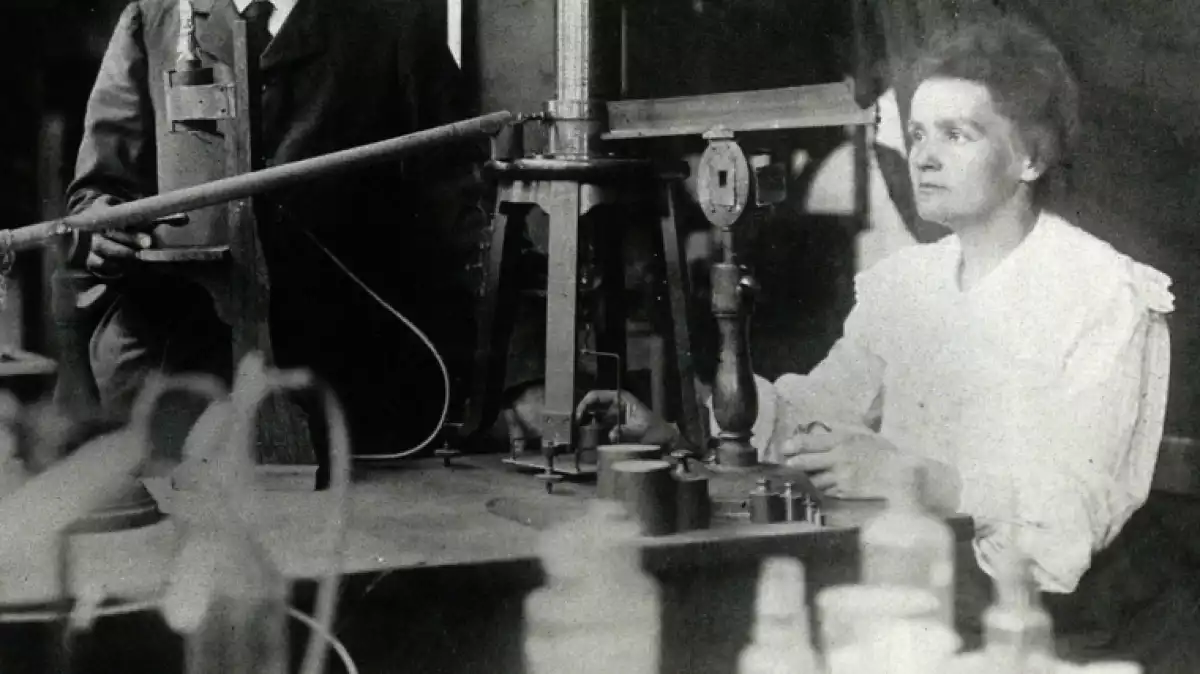
31. Mahatma Gandhi (1869-1948)
The activist and political leader Mohandas Karamchand Gandhi was the central historical figure in the independence of India after the period of colonization by the British Raj.
He is famous above all for his methods of peaceful resistance such as nonviolent civil disobedience and the hunger strike. The honorary name "Mahatma" was granted to him by the poet and philosopher Rabindranath Tagore, and is translated as "big soul."
32. Adolf Hitler (1889-1945)
The dictator and leader of the Nazi Party Adolf Hitler is the main icon of the European fascist movements of the second quarter of the 20th century. Hitler's army and its allies conquered most of Europe and North Africa during World War II and was also the ideological architect of the Holocaust; which caused around 40 million deaths.
33. Amelia Earhart (1898-1937?)
Aviator and writer Amelia Mary Earhart was the first woman to cross the Atlantic alone and broke many other records during her lifetime. She was also a leading activist who fought for the political and civil rights of women.
Amelia Earhart disappeared while trying to circle the planet by flying over the Equator. The most substantial assumptions about what happened to her suggest that her plane probably ran out of fuel and she and her navigator Fred Noonan died at sea.
34. Frida Kahlo (1907-1954)
Magdalena Carmen Frida Kahlo y Calderón is one of the most famous artists in history, as well as the most important Mexican historical figure around the world.
Her most remembered paintings are her self-portraits, which include elements of magical realism and typical of Mexican culture. In this sense, Frida Kahlo is considered a key figure in the construction of Mexico's national identity.
35. Simone de Beauvoir (1908-1986)
The writer, philosopher and French political activist Simone Lucie Ernestine Marie Bertrand de Beauvoir is one of the leading historical figures associated with feminism, and in particular with its theoretical component.
The most well-known work of Simone de Beauvoir is "The Second Sex" (1949), a foundational book for modern feminism in which the writer analyzes the oppression of women throughout history.
36. Rosa Parks (1913-2005)
American Rosa Parks is one of the most famous women in recent history. This African-American activist is remembered mostly for her pivotal role in the Montgomery bus boycott because she refused to give up her seat to a white man and move to the back of the bus, as stipulated in the Alabama federal law.
Rosa Parks was later tried for civil disobedience and later became an international icon of resistance to racial segregation.
37. Nelson Mandela (1918-2013)
Nelson Rolihlahla Mandela is the emblematic political leader of the anti-apartheid movement in South Africa. After his time of radical activism and his time in prison, Mandela was elected as president in a democratic election, becoming the first black president of the country.
38. Rosalind Franklin (1920-1958)
British Rosalind Elsie Franklin is one of the most famous scientists of all time. The use of chemistry was a fundamental element in the molecular analysis of DNA, RNA, viruses, graphite, and carbon.
Her contributions regarding DNA and RNA were only recognized posthumously by the community, although her work makes it one of the most influential historical figures of the last century.
39. Ana Frank (1929-1945)
Annelies Marie Frank was a Jewish girl who was born in Germany and was a victim of the Holocaust. Anne Frank is remembered by the private diary in which she related her life while she and her family were hiding from the Nazis, very famous throughout the world.
40. Margaret Hamilton (1936-)
Margaret Heafield Hamilton is the only historical character in this list that is still alive today and is one of the most famous women in recent times. Hamilton is the systems engineer and computer scientist who developed the software of the Apollo Space Program, thanks to which a group of American astronauts arrived on the Moon in 1969.
Check out the original article: Personajes históricos: 40 personas famosas de la historia del mundo at viviendolasalud.com
